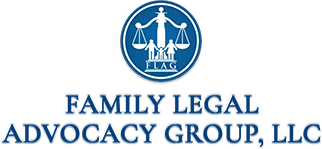Maryland on Saturday will become the first state in the nation with a law to protect funding for Planned Parenthood from a possible federal cutoff.
Legislation ensuring that the state will cover the cost of the group’s health care services in Maryland if Congress blocks it from receiving federal funding is among the more than 250 bills passed by the General Assembly that will become law July 1.
The new laws include Republican Gov. Larry Hogan’s plan to offer tax breaks for manufacturers who bring new jobs to economically disadvantaged parts of the state, as well as his proposal to expand technical education. Other laws give retired police officers and firefighters a tax break, require schools to educate students about the dangers of heroin and other opioids, and rename two state departments.
In addition to the changes brought by this year’s laws, the state’s minimum wage will increase 50 cents to $9.25 an hour under a law passed in 2014.
The measure protecting Planned Parenthood’s funding, which the Democratic-dominated legislature passed amid Republican opposition, became law without Hogan’s signature. The governor’s office did not respond to a request for comment Thursday.
State Sen. Richard S. Madaleno Jr., the bill’s Senate sponsor, said “the actions of the Republican radicals in the U.S. Congress who are out to stamp out choice in any manner possible” prompted him to introduce the legislation.
The U.S. Senate is now considering legislation to repeal the federal Affordable Care Act — Obamacare — and to replace it with a national health care system that includes language that would bar funding health care services provided by entities such as Planned Parenthood that provide abortions or family planning services. A bill including such a provision already passed the House of Representatives.
Republicans are backing the cutoff because Planned Parenthood is the nation’s largest provider of abortion services. A decades-old law already bans federal reimbursement for abortions, but the measure before the Senate would end the funding of such services as contraception and breast examinations by the organization.
“They want to drive Planned Parenthood out of business as an effort to eliminate reproductive choice in the country even though Planned Parenthood is the largest provider of health services to young women in the country,” said Madaleno, a Montgomery County Democrat.
Passage of the bill, backed by Republican President Donald J. Trump, is now in doubt because of divisions among the U.S. Senate’s majority Republicans, ranging from whether the bill goes far enough to end Obamacare to its proposed cuts to Medicaid and other programs.
The Maryland measure would take effect only if the federal cutoff were enacted. It would establish a state family planning program to ensure continued funding of services provided under Title X of the federal Public Health Service Act.
The bill’s House sponsor, Del. Shane Pendergrass, said the measure is intended to protect the people who depend on Planned Parenthood for such things as family planning services, cancer screenings and treatment of sexually transmitted diseases.
“The need for these services could not be met by existing providers if Planned Parenthood were eliminated from the market,” the Howard County Democrat said.
Karen Nelson, president of Planned Parenthood of Maryland, said the group serves about 25,000 patients a year — about 90 percent of them women — through the Medicaid and Title X programs. She said the organization is paid about $2.75 million annually for providing those services.
The Maryland law will help Planned Parenthood keep its doors open, Nelson said.
“It’s wonderful, and we’re gratified to be in a state with such forward-looking legislators,” she said.
Also taking effect without Hogan’s signature is a measure curbing school systems’ use of suspensions and expulsions of young students as a form of discipline. Instead, the law requires schools to emphasize counseling and other methods short of suspensions to deal with misbehavior by children in pre-K through second grade.
Among the bills becoming law with Hogan’s approval is his More Jobs for Marylanders Act, which provides up to 10 years of income and state property tax credits for manufacturers that create new jobs in targeted jurisdictions, including Baltimore and the counties in Western Maryland and the Eastern Shore.
The legislation passed on the final day of the General Assembly session after the governor and Democratic lawmakers agreed on provisions promoting apprenticeship programs at manufacturing companies.
The state will expand its commitment to Hogan’s existing P-TECH program — for Pathways in Technology Early College High School — under legislation that mandates funding for the high school and community college program. Under the law, the program will more than triple in size to more than $3 million by 2021.


